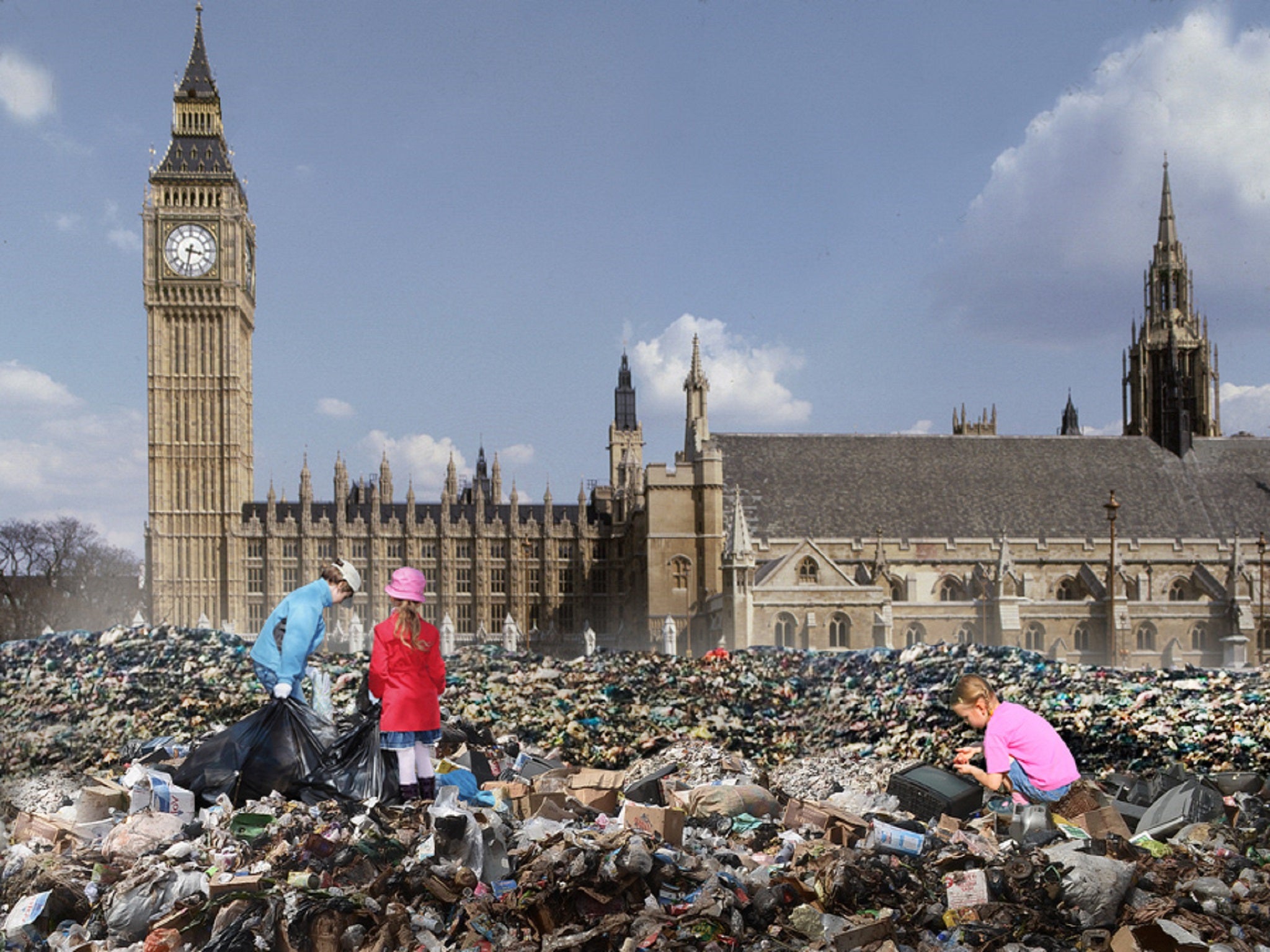Slum Britain: UK cities given ‘make-unders’ to show what life would be like if Buckingham Palace and the Houses of Parliament were in shanty towns
Government pledges support to Practical Action campaign for sanitation in world’s poorest cities

Your support helps us to tell the story
From reproductive rights to climate change to Big Tech, The Independent is on the ground when the story is developing. Whether it's investigating the financials of Elon Musk's pro-Trump PAC or producing our latest documentary, 'The A Word', which shines a light on the American women fighting for reproductive rights, we know how important it is to parse out the facts from the messaging.
At such a critical moment in US history, we need reporters on the ground. Your donation allows us to keep sending journalists to speak to both sides of the story.
The Independent is trusted by Americans across the entire political spectrum. And unlike many other quality news outlets, we choose not to lock Americans out of our reporting and analysis with paywalls. We believe quality journalism should be available to everyone, paid for by those who can afford it.
Your support makes all the difference.They are among the UK’s finest and most well-known urban landmarks – but as you have never seen them before.
A charity has commissioned artists to give the sights in London, Edinburgh and Brighton “make-unders”, showing what they would be like if they stood above the filthy slums and rubbish tips of their poorer international counterparts.
They aim to show what Britain might be like if it were to experience the same booming urbanisation as is happening in Nepal and Bangladesh. In 2007, the world’s urban population overtook the rural population for the first time in human history – and the change is almost entirely driven by swelling cities in developing countries.
Practical Action, the UK-based development charity which commissioned the work, said an estimated 5.5 million people move from the countryside into slums in South East Asia every year – equivalent to 15,000 a day.
UN-Habitat estimated that the world’s slum population would double in the next 30 years.
Practical Action CEO Simon Trace said: “Urban poverty is a global problem which needs to be addressed immediately. Every day people are dying because they are forced to drink water contaminated with human waste and live in housing which will collapse when earthquakes, high winds or flood waters come.”
The charity has launched a Safer Cities appeal, which hopes to raise funds to pay for clean water, toilets and training for families in some of the world’s poorest slums.
The appeal has been backed by the Government, with International Development Secretary Justine Greening saying: “By matching pound for pound all public donations to this appeal, we will help Practical Action provide safe drinking water and basic sanitation to over four thousand people living in slums in Bangladesh and Nepal.
“As well as day-to-day health benefits, this will reduce the spread of potentially deadly water-borne diseases that follow regular seasonal flooding. Better hygiene isn’t just vital to save lives, it means people can focus on earning money and taking care of their families.”
Join our commenting forum
Join thought-provoking conversations, follow other Independent readers and see their replies
Comments